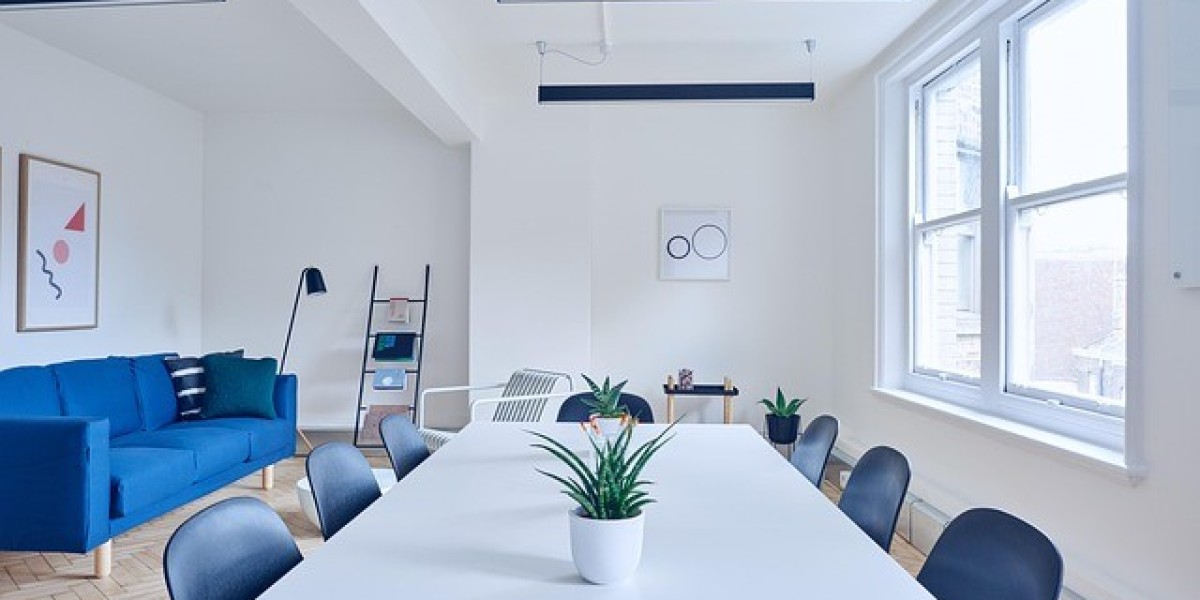Choosing the right workspace has become one of the biggest financial decisions for startups and small businesses in the UAE. The modern workforce demands flexibility, functionality, and cost efficiency, but not every option fits every stage of growth. Coworking spaces and private offices both promise comfort and convenience, yet their financial realities differ more than most entrepreneurs realize.
Worksation Business Centre has seen businesses thrive or struggle based on workspace strategy. Understanding the real cost structure behind coworking versus private offices helps leaders make better decisions. This detailed breakdown explores how these two workspace models stack up in expenses, flexibility, and long-term value.
The Real Cost Breakdown of UAE Coworking vs Private Offices
The UAE has quickly become one of the most dynamic business hubs in the world, with thousands of startups choosing between shared coworking environments and private office setups. The right choice depends on your priorities, budget, privacy, scalability, and operational needs.
For many, coworking spaces in Dubai provide an affordable and flexible starting point. Others prefer private offices for their exclusivity and control. Let’s explore how the actual costs compare when you break them down piece by piece.
1. Base Rental Costs
Coworking spaces in Dubai typically range from AED 700 to AED 2,500 per desk per month, depending on the location, amenities, and plan type. These spaces offer flexibility with monthly memberships or short-term contracts.
Private offices, on the other hand, usually start around AED 4,000 monthly for smaller rooms and can go up to AED 10,000 or more for larger suites in premium areas like Business Bay or Downtown Dubai.
According to a JLL UAE Market Study (2024), companies using coworking spaces saved an average of “38%” on workspace expenses compared to businesses leasing traditional offices. The savings primarily stem from shared utilities, furnishings, and services that eliminate startup overhead.
2. Setup and Fit-Out Costs
Coworking spaces come fully equipped, you can walk in and start working immediately. There are no furniture costs, renovation fees, or security deposits beyond your membership.
Private offices may involve initial investments like furniture, interior branding, and setup charges. For custom layouts, fit-out costs can easily reach “AED 20,000–30,000,” particularly for high-end spaces.
A Knight Frank workspace report (2023) revealed that startups using coworking setups were able to launch operations “60% faster” than those establishing private premises, primarily because of zero setup time and lower regulatory steps.
3. Utilities and Maintenance
One of the biggest hidden cost differences comes from utilities. In coworking spaces, services such as electricity, Wi-Fi, air conditioning, and cleaning are all bundled into the membership fee. You know exactly what you’re paying each month, with no surprise bills.
Private offices often bill separately for these essentials, and the monthly utility total can easily reach “AED 1,000–2,000” depending on office size and usage.
A Colliers UAE report (2024) found that businesses in shared spaces spent “55% less” on monthly utilities compared to traditional tenants, which is a major incentive for startups managing lean budgets.
4. Staffing and Administrative Support
Coworking memberships often include shared receptionist services, mail handling, and IT assistance. For startups, this reduces the need to hire additional staff for administrative duties.
Private offices offer autonomy but usually require your team to handle front-desk management, courier handling, and basic maintenance coordination. This can add operational pressure and costs over time.
Entrepreneurs switching from private offices to coworking environments report average savings of “AED 5,000–8,000 per month” in administrative and utility costs combined.
5. Privacy and Productivity
Coworking spaces are designed to encourage interaction, networking, and community. While this environment sparks collaboration, it may not always suit confidential discussions or focus-driven work. Private offices provide that dedicated, uninterrupted environment necessary for client calls, strategy sessions, and concentration-heavy tasks.
A Cushman & Wakefield survey (2024) found that employees in private offices were “18% more focused,” while those in coworking spaces reported “25% higher satisfaction” with work-life balance and networking opportunities. The right choice depends on whether your team values concentration or collaboration more.
6. Flexibility and Growth Potential
For startups and growing companies, flexibility is often the deciding factor. Coworking memberships can scale quickly, you can add or remove desks as your team changes. Private offices usually require longer leases, often ranging from six months to a full year.
The Dubai Startups Outlook (2025) report revealed that “63% of UAE startups” began operations in coworking environments before moving to private offices once they stabilized financially. This progression helps businesses conserve early-stage funds while maintaining professional credibility.
7. Brand Image and Client Perception
Private offices deliver exclusivity and a strong brand impression, especially for client-facing businesses such as consulting, finance, or law. Having a permanent address and customized interiors sends a message of stability.
However, modern coworking facilities have elevated their game significantly. Many now feature premium lounges, glass meeting rooms, and professional concierge services that rival traditional corporate settings. A PwC UAE survey (2023) found that “74% of clients” cared more about the professionalism of the meeting environment than whether it was shared or private.
8. Long-Term ROI
Cost efficiency isn’t just about immediate savings, it’s about value over time. Coworking spaces let startups allocate funds toward marketing, hiring, or product development instead of rent.
Private offices, however, offer a sense of permanence and consistency that can strengthen brand reputation and client trust. Businesses that rely on frequent meetings or sensitive projects often find this reliability worth the higher cost.
Many UAE startups now choose hybrid setups: starting in coworking environments and later transitioning to private offices as their team and revenue grow. This gradual model ensures financial stability while enabling scalability.
Conclusion
In the UAE’s fast-evolving business ecosystem, choosing between coworking spaces and private offices isn’t a simple cost decision, it’s a strategic one. Coworking spaces offer flexibility, speed, and lower entry costs, which appeal to startups, freelancers, and remote teams. Private offices provide the structure, privacy, and prestige that established firms rely on for consistency and brand strength.
The best approach lies in understanding your company’s current priorities. If you’re optimizing for growth and adaptability, coworking delivers agility. If your brand requires exclusivity and control, a private office offers stability. Whichever path you choose, consider it an evolving investment in your team’s productivity, not just a monthly expense.
FAQs
1. Are coworking spaces more affordable than private offices in Dubai?
Yes. On average, coworking memberships reduce total workspace costs by 30–40% compared to private leases.
2. Who benefits most from coworking spaces?
Here are the main beneficiaries:
Early-stage startups testing new markets
Freelancers and consultants
Remote teams seeking a part-time base
3. Are private offices still valuable for small businesses?
Yes, especially if you require privacy, long-term stability, or daily in-person collaboration.
4. Can I switch from coworking to a private office easily?
Yes. Most business centres allow you to upgrade within the same facility, maintaining your address and support services.
5. What hidden costs should I be aware of?
For private offices, watch for utility bills, maintenance, and fit-out expenses. For coworking spaces, some premium meeting room bookings or extended hours may incur extra charges.







